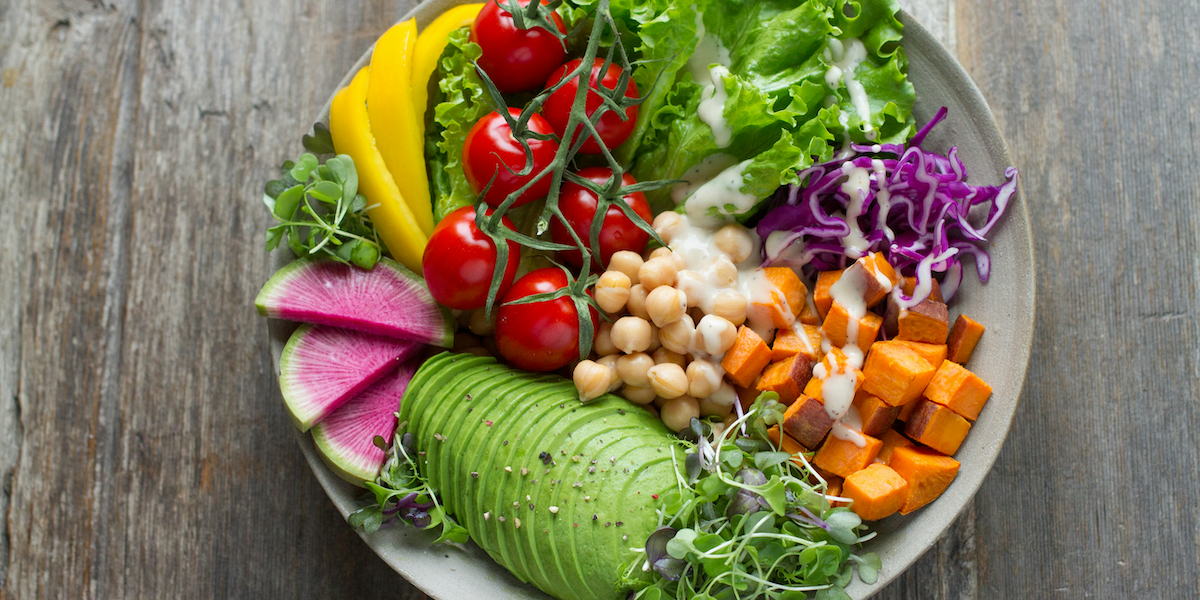Image commercially licensed from Unsplash
In a huge recent study, dramatic lifespan benefits – more than ten years – were estimated for even less-than-stellar adherence to excellent nutrition.
In 2019, the Global Burden of Disease Study, an ongoing epidemiological study that tracks health metrics in 195 countries, estimated that 22% of deaths worldwide are caused by poor diet. Specifically, these poor diets are characterized by an insufficient intake of vegetables, fruits, nuts, and seeds, and whole grains, with a high intake of sodium. Since then, more evidence has emerged about preventing cancer with food. Researchers writing in PLOS Medicine in February 2022 estimated how life expectancy changes when someone makes a sustained change in their diet, such as an increase in vegetable or fruit intake, a reduction in processed meat intake, or a complete dietary overhaul. The researchers’ rationale is that understanding the health-promoting potential of different foods in a quantifiable way could help people make positive changes in their diets.
I have reviewed over 10,000 studies on this subject and developed the Nutritarian diet to include those foods with the most dramatic effects on reducing cancer incidence and deaths and making it tasty and doable. The acronym, G-BOMBS, stands for Greens, Beans, Onions, Mushrooms, Berries, and Seeds. Those six foods with the most scientific support to prevent cancer. The side effect is people lose their excess weight pretty easily.
A Nutritarian diet is also unique in that the fat intake predominantly is sourced from whole seeds and nuts, not animal fats or oils, which is the case with the SAD (Standard American Diet). Eating nuts and seeds regularly is consistently linked to longer life in observational studies. Recently, researchers have been investigating connections between the consumption of nuts and the risk of cancer or death from cancer. Most recently, results from the Shanghai Breast Cancer Survival Study suggested that participants with higher than average nut consumption had a 52% lower risk of cancer recurrence, metastasis, or death from breast cancer.
Vegetables are key. For example, a higher intake of cruciferous vegetables and onions is linked to a dramatic reduced risk of cancers of the lung, ovary, stomach, breast, prostate, and colon in numerous studies. These studies also suggest that life expectancy gains are possible, even if you change your diet at age 60 – or later. Researchers found that adding more legumes and nuts, and eating less red and processed meats demonstrated the greatest estimated longevity gains. Eating beans, lentils, split peas, and other legumes daily is a common behavior observed in many of the longest-lived populations in the world (Blue Zones).
Take action. Don’t underestimate the power of excellent nutrition, and don’t think that it’s too late. My experience and observations of people following the Nutritarian diet demonstrate 15 – 20 years of extended lifespan, and even more years of extended healthful active living. In other words, when we invest wisely earlier in life with healthful foods, it pays a huge dividend down the road, and our golden years can be truly golden.
Dr. Fuhrman is a Board-Certified Family Physician and seven times NY Times Bestselling Author.
His latest book is Eat For Life. Visit him at www.DrFuhrman.com. He operates the Eat To Live Retreat in San Diego and hosts online events to support those looking to dramatically improve their health.
Written by: Joel Fuhrman, M.D.











